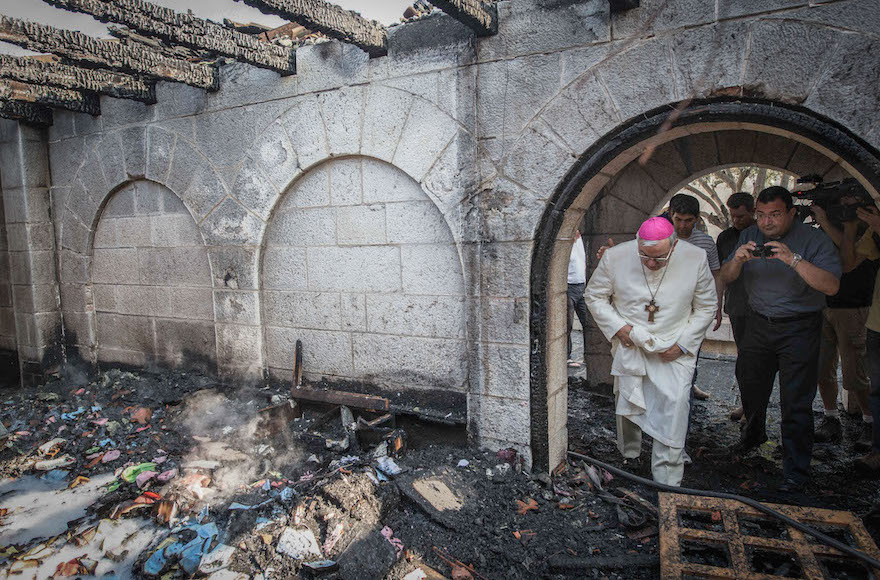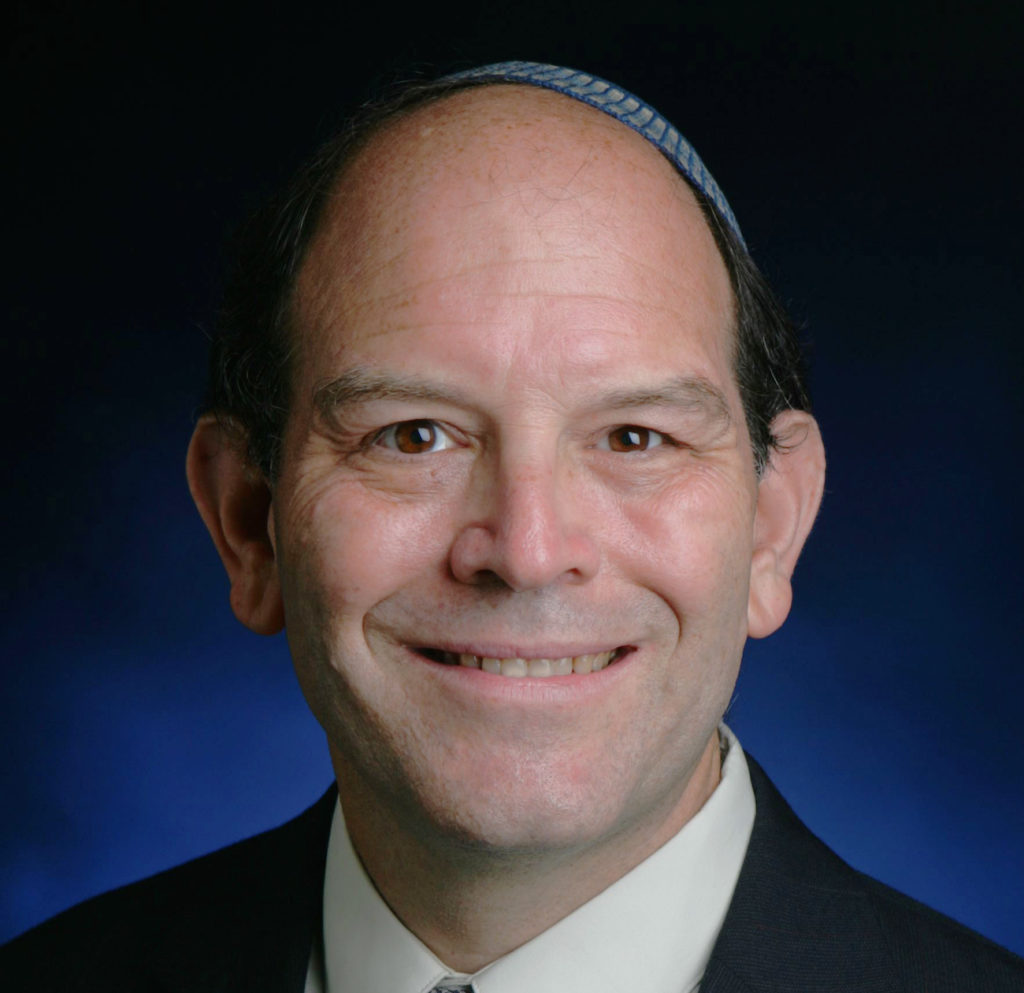At season of Jewish mourning, time to consider our own capacity for evil
Published July 20, 2015

Giacinto-Boulos Marcuzzo, the Roman Catholic auxiliary bishop of the Latin Patriarch of Jerusalem, inspecting the torched Church of the Multiplication in the Galilee, June 18, 2015. (Basel Awidat/Flash90)
NEW YORK (JTA) — The burning a few weeks ago of the Church of the Multiplication of the Loaves and Fishes, a historic church in the Galilee region of Tabgha built on the foundations of a sixth-century house of worship, is not the first act of evil allegedly carried out by Jewish hooligans in the region in recent years.
Three years ago, the fifth-century Hammath Tiberias synagogue mosaic was desecrated in a similar attack allegedly carried out by “Orthodox” vandals opposed to archaeological excavations. And according to Rabbis for Human Rights, there have been 43 attacks against churches, mosques and monasteries in Israel, the West Bank and eastern Jerusalem since 2009.

Steven Fine
We are now in the period known as the Three Weeks, when Jews mourn the destruction of our two ancient Temples, destroyed by Babylonians and Romans thousands of years ago. The season begins with the fast of the 17th of Tammuz, which commemorates the destruction of a Torah scroll by an otherwise unremembered Greek named Apostomos, and it ends with the burning of the Jerusalem Temple and exile from our land. In between, we recall traumas and destruction in all the lands of our dispersion.
There is, however, another less considered list, a mirror image of this one.
This still-short list begins with biblical demands that idolatry be destroyed — “cut off,” as the desecraters of the Tabgha church scrawled on its walls. It continues with Jewish reflection on our forefather Abraham, who since at least the second century BCE, we have imagined as a young patriarch-to-be taking a hammer to his father’s cult statues and burning idolatrous temples in his native Ur.
The list continues with Judah Maccabee, who burned a temple at Karnain together with all who took refuge there. His brother Simon banished the people of Gaza from their homes, destroyed their “idols,” and paraded through the city reciting “hymns and songs of praise.” This was all part of a Hasmonean project to declare an idolatry-free zone in the land of Israel, one that led John Hyrcanus I to destroy the Samaritan Temple on Mount Gerizim in 111-110 BCE.
One product of this ideology was the day in 40 C.E. when Jews in Yavneh, a religiously mixed city near the coast, tore down the altar set up by local Hellenes, causing anger that reached as high as the emperor Gaius, known as Caligula. Centuries later, Jews joined in the Persian invasion of Palestine of 614, burning churches and apparently butchering Christian clergy in Jerusalem’s ancient Mamilla pool.
It is true that the stories of Abraham, the Hasmoneans, Yavneh and the Persian invasion pale before the vast losses suffered by Jews in antiquity, the medieval period, and especially in Europe and Islamic lands in the last century. But this list is nonetheless a warning to us today. It is a remnant of the last time when Jews had power in the Holy Land, the last time that we could fully act upon our best and worst instincts.
Embedded within Judaism is a force for destruction no less powerful than that which inspired our persecutors through the ages. The missing ingredient was Jewish power. The return to Zion has inadvertently released those instincts at the fringes of our society. And the prospects are frightening.
In the wrong hands, Jewish tradition — like all traditions — provides succor to those in our own world bent on “cleansing” our holy land of “idolatry.” It allows evil to claim righteousness and offers support for the small minority among us bent on burning and killing. These Jewish extremists are, as the commentator Nachmanides wrote centuries ago, “repulsive” for imagining that support for their evil can be found in the Torah.
During this season when we mourn our own terrible losses, the events at Tabgha demand still more from us. We must acknowledge our own ability to do evil and use the power of the state and our own influence to purge this evil. Our father Abraham would demand no less from us.
(Steven Fine is the Pinkhos Churgin professor of Jewish history at Yeshiva University. He directs the university’s Center for Israel Studies and the Arch of Titus Project.)













